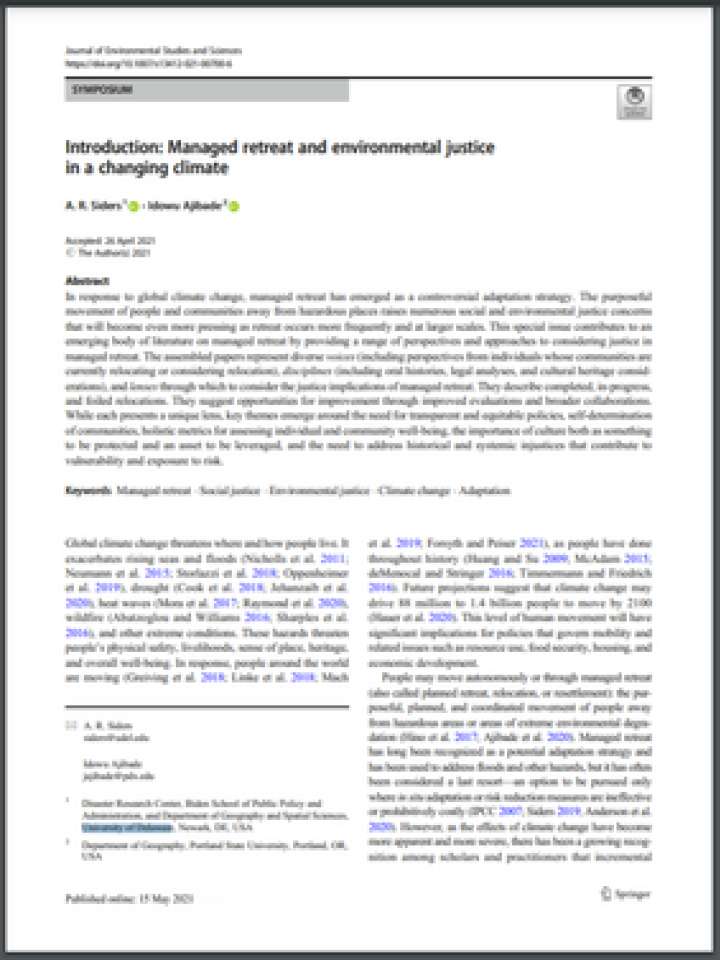Introduction: Managed retreat and environmental justice in a changing climate
This paper contributes to an emerging body of literature on managed retreat by providing a range of perspectives and approaches to considering justice in managed retreat. In response to global climate change, managed retreat has emerged as a controversial adaptation strategy. The purposeful movement of people and communities away from hazardous places raises numerous social and environmental justice concerns that will become even more pressing as retreat occurs more frequently and at larger scales.
The papers discussed represent diverse voices (including perspectives from individuals whose communities are currently relocating or considering relocation), disciplines (including oral histories, legal analyses, and cultural heritage considerations), and lenses through which to consider the justice implications of managed retreat. They describe completed, in-progress, and foiled relocations. They suggest opportunities for improvement through improved evaluations and broader collaborations. While each presents a unique lens, key themes emerge around the need for transparent and equitable policies, self-determination of communities, holistic metrics for assessing individual and community well-being, the importance of culture both as something to be protected and an asset to be leveraged, and the need to address historical and systemic injustices that contribute to vulnerability and exposure to risk.
Explore further
